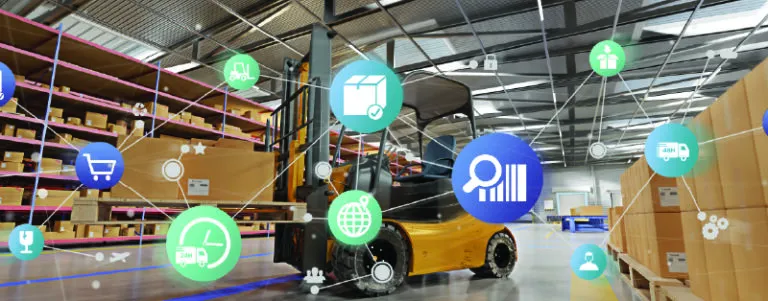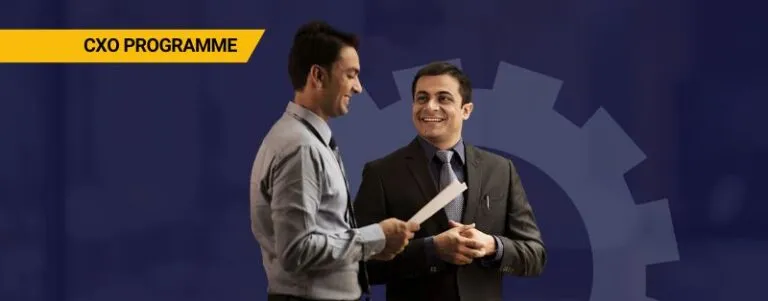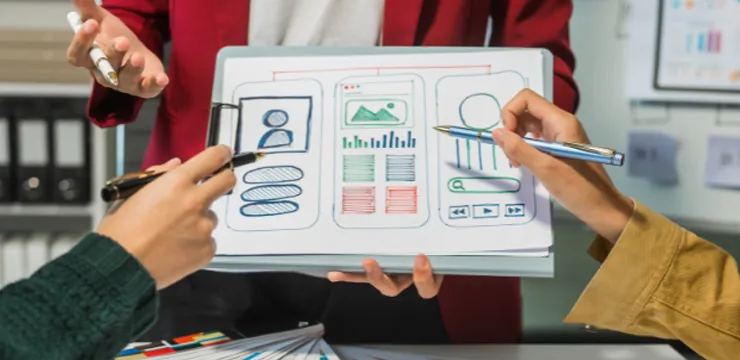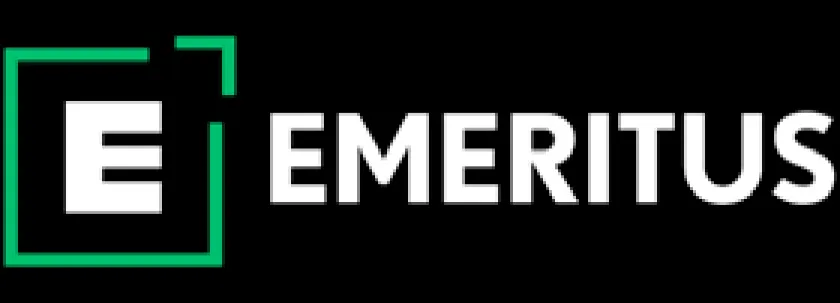10 Personal Skills That Will Make You Indispensable at Work

Talent and skill to succeed in your chosen field are certainly important. However, professionals today cannot and must not rely exclusively on them to get ahead. Think about the daily routine at the workplace—communicating with colleagues, managing deadlines, handling unexpected challenges, and collaborating on projects. Each of these tasks relies on personal skills like communication, time management, and adaptability. These skills often define how smoothly a workday unfolds and how effectively one contributes to the team and the company. While technical knowledge gets your foot in the door, it’s these softer skills that help you thrive, build strong relationships, and take on leadership roles. By focusing on developing these qualities, you can enhance your career and create a more fulfilling professional journey.
What are Personal Skills?
Personal skills are abilities that shape how one interacts with others and handles different workplace situations. They are not tied to a specific job but are universally beneficial across industries. Examples include communication, problem-solving, and emotional intelligence.
Unlike technical skills, personal skills are harder to quantify. However, they are equally—if not more—important for building a successful career.
Why Personal Skills Matter in the Workplace
Personal skills for work are critical because they enhance collaboration and productivity. For example, strong communication ensures clear expectations, while empathy builds trust among team members.
Employers look for candidates who bring more than expertise to the table. They want individuals who can adapt, resolve conflicts, and contribute positively to the work environment.
ALSO READ: Top 10 Skills of 2025 That Will Make You the Best Hire
Top Personal Skills to Develop as a Professional
1. Communication
Good communication isn’t just about talking; it’s about listening and understanding. Whether it is at a meeting or writing an email, clear communication ensures that the message is understood. For example, active listening is a personal skill that helps build trust and resolve conflicts. Moreover, effective communication makes collaboration easier. It enables you to present ideas confidently and respond to feedback constructively. This personal skill is essential for resumes, interviews, and team projects.
To improve, practice speaking clearly and listening attentively. Pay attention to body language, tone, and context. Great communication bridges gaps and fosters teamwork.
Best Business Management Courses
2. Emotional Intelligence
Emotional intelligence is the ability to understand and manage emotions—both one’s and others. Professionals with high emotional intelligence can navigate workplace challenges smoothly. They show empathy, handle criticism well, and adapt to different personalities.
For instance, if a colleague is stressed, an emotionally intelligent person will provide support instead of escalating the tension. This personal skill for work is especially valuable for leaders. It helps create a positive and productive environment.
Start by observing your emotional responses. Then, work on managing them calmly. Practice empathy by understanding others’ perspectives.
3. Time Management
Time is a limited resource. Mastering time management ensures productivity and reduces stress. Prioritizing tasks, setting deadlines, and avoiding procrastination are all part of this essential personal skill. For example, professionals who plan their day effectively often meet deadlines and exceed expectations. In contrast, poor time management leads to missed opportunities and increased pressure.
To improve, use tools like calendars and to-do lists. Set realistic goals and break tasks into smaller steps. Additionally, learn to delegate when necessary. Time management allows you to focus on what matters most.
4. Adaptability
The modern workplace constantly evolves. Adaptability, therefore, is a critical personal skill for work. It involves embracing change and finding solutions in challenging situations.
For example, adapting to new technologies or shifting roles demonstrates flexibility. Furthermore, employers value adaptable employees because they handle uncertainty with ease.
To enhance this skill, keep an open mind. Learn new tools, take on different responsibilities, and view change as an opportunity to grow. It is the key to staying relevant in a competitive job market.
5. Problem-Solving
 Problems are inevitable at work. How you approach them defines your growth. Problem-solving is a self-development skill that involves analyzing situations, identifying solutions, and implementing them effectively.
Problems are inevitable at work. How you approach them defines your growth. Problem-solving is a self-development skill that involves analyzing situations, identifying solutions, and implementing them effectively.
When a project falls behind schedule, for instance, it doesn’t help to give in to stress and panic. Adept problem-solving to find a solution is needed to help adjust plans and meet deadlines. This skill also builds confidence as you learn to tackle challenges head-on.
Practice critical thinking. Break problems into smaller parts and evaluate possible outcomes. Seek feedback to refine your solutions. Ultimately, problem-solving turns setbacks into success stories.
6. Teamwork
Workplaces thrive on collaboration. Team building is a crucial personal skill that promotes shared success. It involves cooperating, resolving conflicts, and contributing positively to group efforts.
For instance, working on a team project requires clear communication, mutual respect, and adaptability. Team players support their colleagues and prioritize the group’s goals over individual achievements.
To develop this skill, be open to different perspectives. Take initiative, but also listen to others. Moreover, show appreciation for teammates’ contributions. Doing so will help foster stronger relationships and achieve better outcomes.
7. Leadership
Leadership isn’t limited to managerial roles. It’s a personal skill that helps you guide, motivate, and inspire others. Strong leaders communicate effectively, solve problems, and make decisions confidently.
Leading a project requires setting clear goals, delegating tasks, and supporting your team. Good leadership also involves recognizing others’ strengths and encouraging growth.
To improve, take on responsibilities outside your comfort zone. Mentor colleagues, volunteer for challenging projects, and practice decision-making. In the meantime, observe great leaders and learn from their strategies.
Best Leadership Courses
8. Creativity
Creativity is about finding innovative solutions and approaching problems with fresh perspectives. This personal skill is especially valuable in industries like marketing, design, and technology.
For instance, developing a unique campaign idea or streamlining a workflow demonstrates creativity. Employers appreciate individuals who can think critically and innovate.
To enhance this skill, explore different areas of interest. Practice brainstorming, and don’t fear failure. Additionally, surround yourself with diverse ideas and perspectives. Creativity leads to breakthroughs and sets you apart.
Best Design Thinking Courses
9. Conflict Resolution
Workplaces often become scenes of disagreements. Conflict resolution is a personal skill that ensures such issues don’t disrupt productivity. It involves active listening, empathy, and negotiation.
For example, mediating between two team members requires understanding both sides and finding a compromise. This skill strengthens relationships and creates a positive work culture.
It is important to remain calm during disagreements. Focus on facts, not emotions. Practice clear communication and seek win-win solutions. Practice this regularly, and you will build trust and foster collaboration.
10. Continuous Learning
The willingness to learn is a powerful self-development skill. In a rapidly changing world, continuous learning ensures that you remain competent and adaptable.
For instance, taking online courses or attending workshops demonstrates your commitment to growth. It also opens doors to new opportunities and skill sets.
To develop this skill, set learning goals. Stay curious and proactive about acquiring knowledge. Similarly, seek mentorship and feedback to refine your abilities. Continuous learning fuels career advancement.
ALSO READ: How Adaptable Skills Can Make You Indispensable in the Future
Building Personal Skills for Success
Improving personal skills requires dedication and consistent effort. Here are some strategies to enhance these abilities:
- Regularly ask for input from peers and mentors.
- Identify specific skills to develop and track progress.
- Enroll in workshops or online programs to learn new techniques.
- This helps improve focus, emotional intelligence, and resilience.
Self-development skills are a lifelong investment that pays dividends in your career and personal life.
How to Showcase Personal Skills on Your Resume
Employers often scan resumes for personal skills that match the job description. Highlighting these abilities can increase your chances of landing interviews.
Personal Skills for resume tips:
- List relevant personal skills for the specific role.
- To highlight personal skills for resume, use action verbs to demonstrate skills. For example, “Led a team of 10 to complete a project ahead of schedule.”
- Whenever possible, include metrics to show the impact of your skills.
ALSO READ: Writing a Career Change Resume: A Comprehensive Guide for Professionals
Developing personal skills is, therefore, essential for professional success. From communication to adaptability, these qualities enhance your performance, relationships, and growth. Start by identifying areas for improvement. Practice consistently, seek feedback, and remain open to learning. Do this and gradually build a skill set that prepares you for opportunities and challenges. In the meantime, remember that personal development is a journey.
Each step forward brings you closer to your goals. By focusing on these valuable skills, you will create a fulfilling and successful career. So, are you ready to elevate your skills? Explore online professional courses curated by Emeritus and gain the edge you need to thrive in your career.
Write to us at content@emeritus.org











